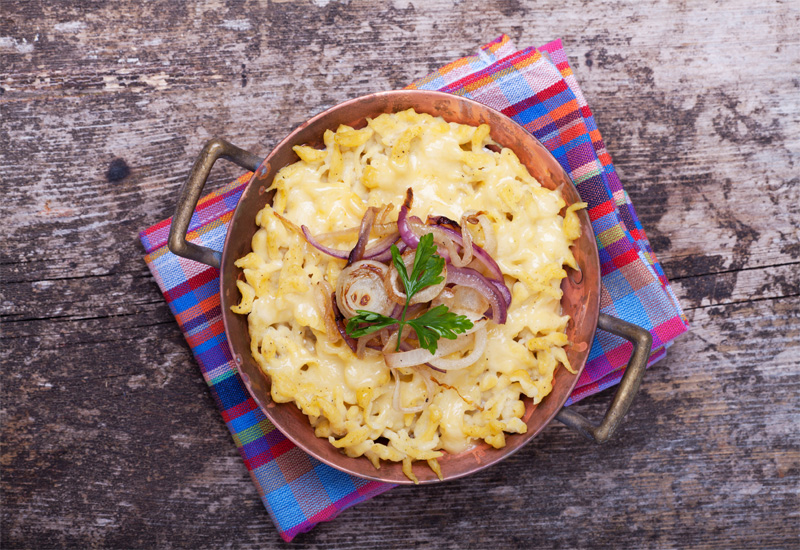 The German Garden at the Doha Marriott Hotel is one of the ways the hotel is increasing awareness among diners about the cuisine.
The German Garden at the Doha Marriott Hotel is one of the ways the hotel is increasing awareness among diners about the cuisine.
What is the supply stream like?
KP: There are some good quality products here for basic ingredients. However, for special ingredients like certain types of meats, majority of the products we use come from Germany itself for their authenticity or because they are not available here.
SN: We have the best German food suppliers in UAE. The products are best quality, fresh and frozen and directly sourced from Germany. By growing direct point-to-point traffic between the two cities, UAE is looking forward to strengthening ties between the capital of the UAE and Germany, this will speed up the product supply chains.
SA: There is a detailed logistics procedure behind the scene making sure we are able to source the best quality products. We work closely together with our suppliers to ensure we receive seasonal products from the different regions in Germany.

| Advertisement |
BR: The supply chain is pretty good. There are many suppliers who directly import good quality produces from Germany. Even fresh sausages and German delicatessen products are available in the market. For pork products, suppliers need to have a special import license.
What challenges to do you face?
SA: Germany is quite a distance from Dubai and we receive all our products by air freight. To ensure all products are fresh we need to be well-organised and monitor the delivery process very carefully. Consequently, the biggest challenge is to avoid any delivery delays and price impacts when it comes to increasing travel costs.
BR: Prices are one of the challenges. The main one is with fresh products. Suppliers need a minimum quantity to import/air freight from Germany to become cost effective. As we do not have many German food outlets, this minimum quantity is not achieved and as a result the entire freight gets cancelled or delayed.
KP: Prices are a big challenge in this part of the world considering the popularity and demand of German cuisine, although a relatively new one in Doha, is still growing.
SN: The biggest challenge is to serve the product at reasonable prices, and to avoid any confrontation with the local culture as German cuisine’s famous products are made with pork. Most the products are imports so the purchase cost is high. The competition is high because of lot of German restaurants are coming every year and everyone is trying to do their best.
KP: With having to import products from overseas, we are certainly challenged with prices and the volatility at which prices change.
What does the future look like for German cuisine?
DV: The outlook for German cuisine is very promising; it will take some time for German cuisine to reach the same levels of popularity as other international cuisines, but it is becoming more and more sought after, especially with the rise in German expats moving to the region.
BR: The future is good as we do not have many German cuisine outlets here. But before opening too many, we need to create an awareness about it. One has to understand that these restaurants do serve pork. These are not fully halal-compliant.
SN: While the UAE relies on attracting tourists from across the globe, Germany, which is also our largest trading partner, has consistently generated an influx of inbound visitors. And numbers are rising. We have a tremendous increase of European guest staying with us and definitely in future the German cuisine will be very popular even with the local guests enjoying it.
KP: The future looks bright indeed as more and more expatriates are moving to this region and people travel more frequently thus exposing them to foreign cuisines.
SA: Hopefully we will see the opening of more German restaurants across the region; Germany has much more to show than Oktoberfest, sausages and Sauerkraut!








 Search our database of more than 2,700 industry companies
Search our database of more than 2,700 industry companies









